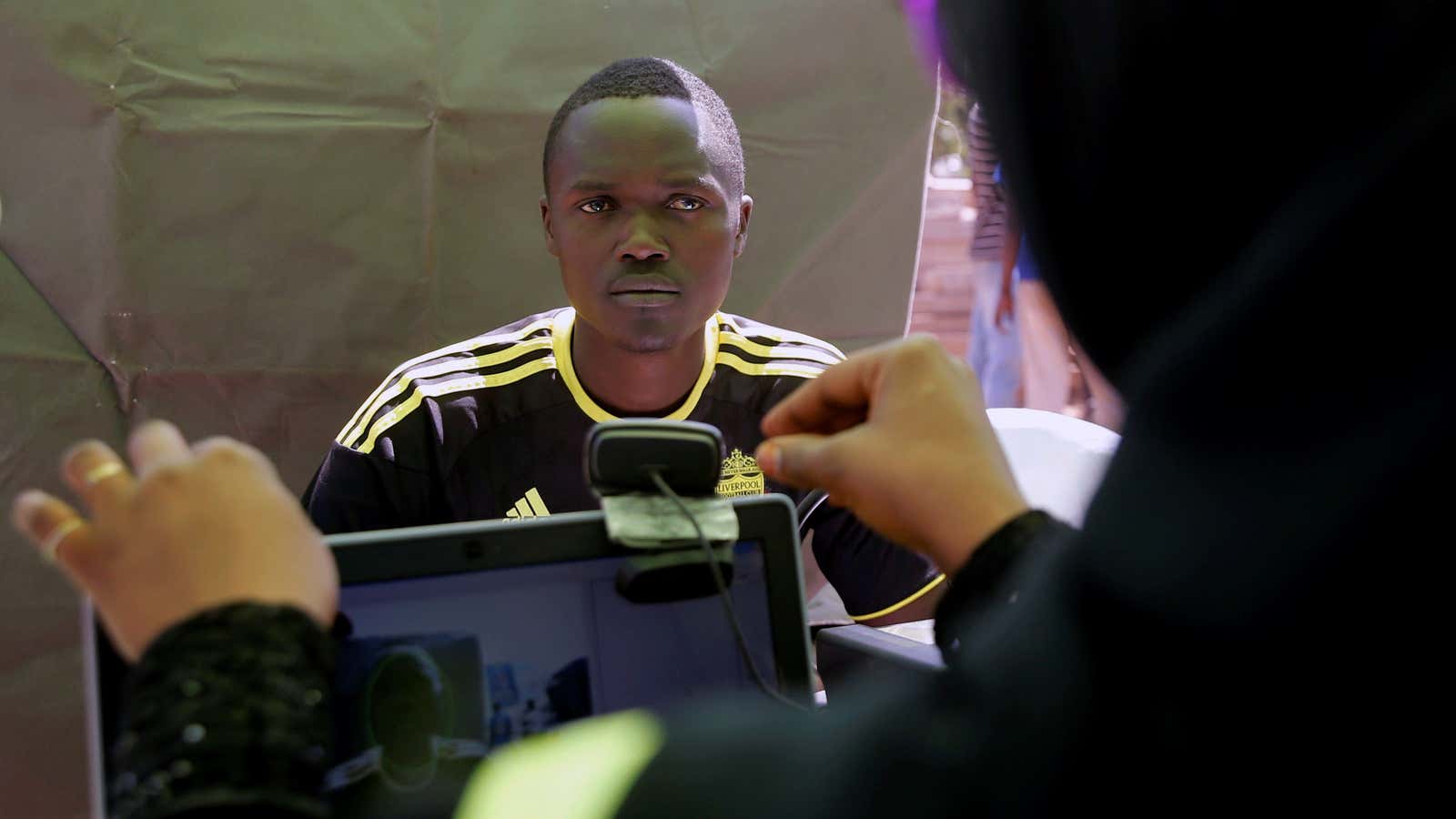Back in 2013, Tanzania’s health authorities trialled a program that allowed parents to register to receive birth certificates for newborns via their mobile phones. The program, ramped up earlier this year, established a simple process whereby health workers send an SMS with a baby’s name, gender, date of birth, and family details to a central database that is managed by a state agency in real time.
At the most basic level, Tanzania is doing this to gather data about its population. And it is far from alone in wanting to: Only 56% of countries worldwide have birth registration data that is at least 90% complete. In sub-Saharan Africa, just 15% of countries have such data.
As we note regularly, many developing countries are hampered by a lack of even the most basic data about their population, so much so that development agencies and NGOs become frustrated with the paucity of information. Most of these organizations are expected, now more than ever before, to be accountable when it comes to spending donor funds and providing evidence of results or impact.
This is one of reasons the OECD issued a report pushing for wealthier nations to target more of their aid to improving statistical systems in developing countries. The agency believes that the lack of reliable data makes it difficult to measure the “impact of development cooperation and where to focus future investments.”
Countries already starting to catch up in the so-called data revolution include Ethiopia, South Africa, and Uganda.
As with the Tanzania example, data collection methodology is also being improved by technological advances. But national governments also have a role to play to help drive this forward. The OECD recommends countries implement statistical laws, regulations, and standards that all parties can trust and rely on. They also recommend improving both the quantity and quality of financing for statistical initiatives.
That quantity/quality distinction is important, and the OECD argues that increasing development aid alone will not guarantee success. It says the financing should reduce duplication, target investments where needs are greatest, and ensure everyone’s needs are counted and aligned with the recipient country’s priorities. The OECD also advocates for improved data literacy, increased cooperation, and more data transparency. They anticipate all of the above would cost donor countries just $200 million more a year in development aid.
As every player in the development supply chain becomes more beholden to data to do their work, the expectation is that more developing countries, particularly in sub-Saharan Africa, will need to prioritize improving statistics collection and analysis. But they’ll need support, from inside their borders and out.
